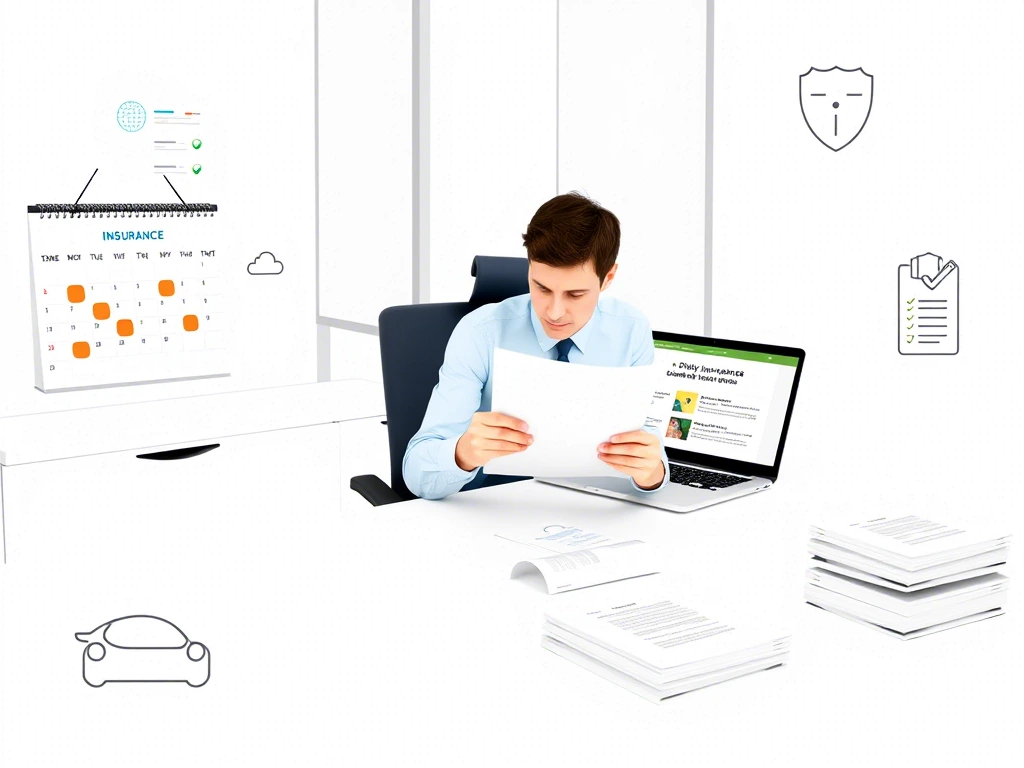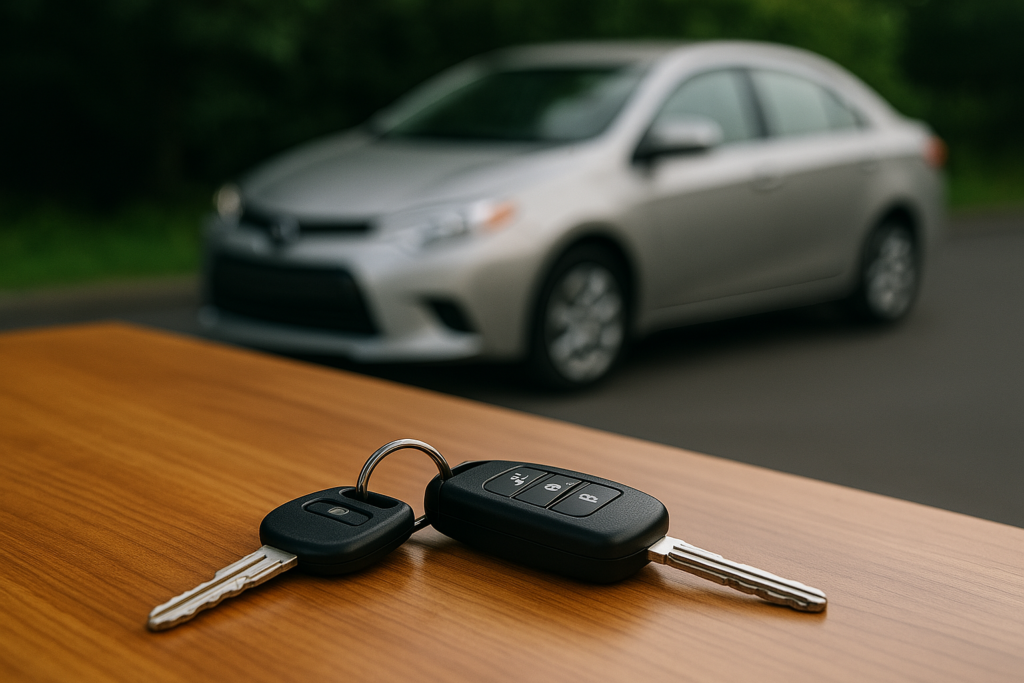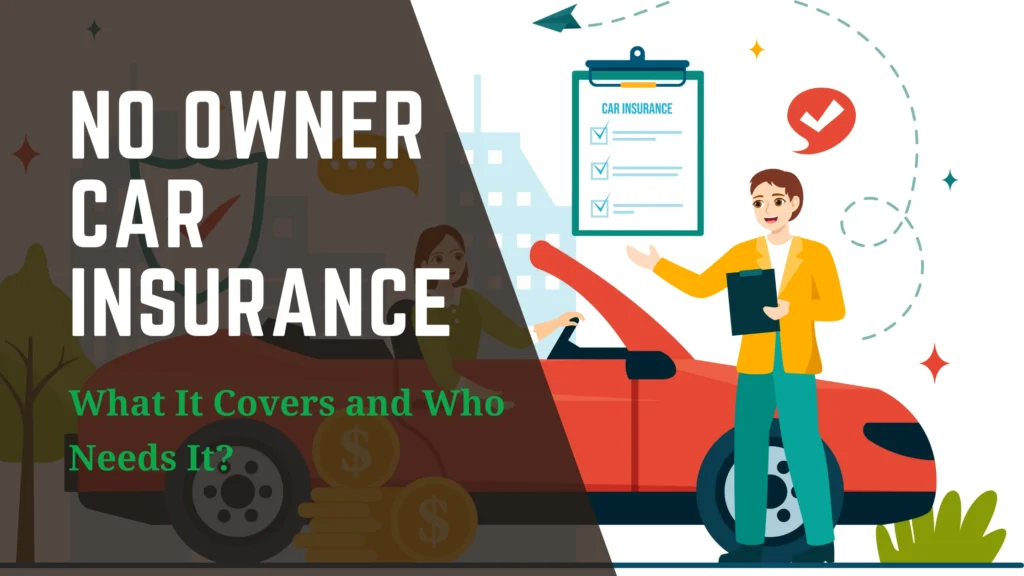Ever Needed Car Insurance Without Owning a Car? You’re Not Alone.
Picture this: You don’t own a car, but you rent one a few times a month. Or maybe you frequently borrow your friend’s car to run errands. You might even be between cars but don’t want your insurance coverage to lapse. In these scenarios, buying a traditional car insurance policy doesn’t make much sense. But driving without insurance? That can be a risky (and costly) gamble.
That’s where non-owner car insurance comes into play. It’s a lesser-known type of policy that offers exactly what the name suggests car insurance coverage for people who don’t actually own a car.
Let’s break it down in simple terms so you know whether non-owner car insurance is a smart move for you.
What Is Non-Owner Car Insurance?
Non-owner car insurance is a type of liability coverage designed for people who don’t own a vehicle but still get behind the wheel occasionally. It offers basic protection if you cause an accident while driving someone else’s car.
Think of it as a safety net. It won’t cover damages to the car you’re driving, but it can help pay for the injuries and property damage you cause to others.
Here’s how it usually works: Say you borrow a friend’s car and accidentally rear-end someone at a red light. Your non-owner liability policy can help cover the cost of the other driver’s medical bills and vehicle repairs up to the limits of your policy.
But and this is important it doesn’t cover the car you’re driving. So if your friend’s bumper is trashed, they’d have to rely on their own car insurance to take care of that.
What Does Non-Owner Car Insurance Typically Cover?
Every insurance policy is a little different, but in general, non-owner car insurance typically includes:
- Bodily injury liability: Pays for medical expenses of others if you’re at fault in an accident.
- Property damage liability: Covers damage to someone else’s car or property.
Depending on your insurer and state, you may also be able to add:
- Medical payments (MedPay) or personal injury protection (PIP): Helps cover your own medical expenses after an accident.
- Uninsured/underinsured motorist coverage: Offers protection if you’re hit by a driver with little or no coverage.
One thing you won’t get? Collision or comprehensive coverage. Those only come with traditional car insurance and cover damage to the car you’re driving not someone else’s.
Who Should Consider Non-Owner Car Insurance?
Great question! This type of policy isn’t for everyone, but if any of the following sound like you, it might be worth a closer look:
- Frequent car renters: Maybe you rent cars frequently for travel or work. Instead of buying costly insurance at the rental counter every time, a non-owner policy might give you better coverage at a lower cost.
- People who often borrow cars: If you regularly drive a friend’s or family member’s car, this coverage gives you extra protection without relying entirely on their insurance.
- People in between vehicles: Planning to buy a car soon? Keeping continuous coverage with a non-owner policy can help you avoid higher rates when you get a new policy later.
- DUI offenders needing SR-22 or FR-44 filings: Courts sometimes require proof of insurance even if you don’t own a car. A non-owner policy can provide that proof while keeping your costs lower.
So no, not owning a car doesn’t mean you should skip car insurance altogether—especially if you’re still getting behind the wheel from time to time.
How Much Does Non-Owner Car Insurance Cost?
The good news? It’s usually cheaper than standard car insurance, often significantly so.

Since you’re not insuring a specific vehicle and unlikely to be driving daily, insurers consider you to be a lower risk. Depending on your driving record, coverage limits, and your location, you might pay anywhere from $200 to $500 per year.
But keep in mind, if you need an SR-22 or similar certification, your rates will probably be higher.
Want to save even more? Shop around. Rates can vary a lot between companies, and some may not offer non-owner car insurance at all. It’s always smart to compare quotes.
When You Might Not Need Non-Owner Insurance
While non-owner car insurance can be incredibly helpful, it’s not for everyone. You may not need it if:
- You never drive or only use public transit or rideshares.
- You live with someone whose car you borrow regularly. Most policies automatically cover household members—so you might already be covered under their insurance.
- You rent cars only occasionally and don’t mind paying for insurance at the rental counter.
Before buying non-owner insurance, make sure it’s not overlapping or unnecessary based on your specific habits and coverage.
What Non-Owner Car Insurance Doesn’t Cover
It’s equally important to know what this type of policy doesn’t do. Here’s what’s typically excluded:
- Damage to the vehicle you’re driving
- Rental car coverage in some cases (you’ll need to double-check this with your insurer)
- Driving a vehicle you own or one owed to you
- Coverage for commercial or business use
So no, this isn’t a shortcut for owners trying to save on insurance. You need a traditional car insurance policy for that.
How Do You Get Non-Owner Car Insurance?
Getting a non-owner car insurance policy is usually pretty straightforward. Here’s a step-by-step overview:

- Start by comparing quotes from different insurance providers. Not all companies offer this type of policy, but most major insurers do.
- Provide your name, driver’s license number, and driving history just like you would with any other auto policy.
- Decide on the coverage limits that suit your needs.
- If required by a court or your state, request an SR-22 or FR-44 filing through your insurer.
Once your policy is active, you’ll receive proof of insurance, which you should keep handy if you plan on renting or borrowing cars.
Real Life Example: When Non-Owner Insurance Pays Off
Let’s say Sarah lives in the city and takes public transit to work. She doesn’t own a car, but a few times a month she borrows her sister’s car to visit their parents. One weekend, she accidentally runs a stop sign and hits another driver.

Luckily, Sarah has non-owner car insurance. It kicks in and helps pay for the medical bills and repairs for the other driver without affecting her sister’s policy too much.
Sarah avoids a major financial headache, and her sister is grateful her insurance didn’t take the full hit.
Sometimes, it’s that peace of mind that makes all the difference.
Final Thoughts: Is Non-Owner Car Insurance Worth It?
If you’re someone who drives now and then but doesn’t own a car, non-owner car insurance can be a smart, affordable solution. It provides essential liability protection and can help you avoid big surprises if an accident happens on your watch.
It’s not one-size-fits-all, but for the right individual, it offers flexibility, legal coverage, and financial protection.
Still unsure? Contact an insurance provider and ask about non-owner policies. A quick phone call could save you thousands and give you some extra peace of mind the next time you sit behind the wheel.
Got questions? Leave them in the comments we’re here to help!
FAQ’s
Yes, you can purchase non-owner car insurance, which provides liability coverage when you regularly drive someone else’s vehicle without owning a car yourself.
Yes, you can purchase non-owner car insurance, which provides liability coverage when you regularly drive someone else’s vehicle without owning a car yourself.
Yes, non-owners insurance allows you to drive someone else’s vehicle legally, providing liability coverage for damages or injuries you may cause while driving.
If you don’t own a car but frequently drive someone else’s, you may need non-owner car insurance to ensure you’re covered for liability while driving.
Looking for More Insurance Insights?
Want to learn more about car insurance basics? Check out our other helpful guides on:
- Atlanta Car Insurance Rates in 2024: What Drivers Should Know
- Pay-Per-Mile Car Insurance: Save Money If You Drive Less
- Does Car Insurance Cover Repairs and What You Should Know
- What Is an Insurance Endorsements and How Does It Work
- Tesla Auto Insurance Coverage Guide: What Every Driver Should Know
- Understanding Your Car Insurance Declarations Page Made Simple
- What Is Hazard Insurance and Why Homeowners Need It
- Affordable Car Insurance Options in San Antonio, Texas
- Best Cheap Car Insurance Options in Seattle, Washington
Thanks for reading! If you found this guide helpful, be sure to share it with a friend who doesn’t own a car but still drives. You might just save them a big headache.

